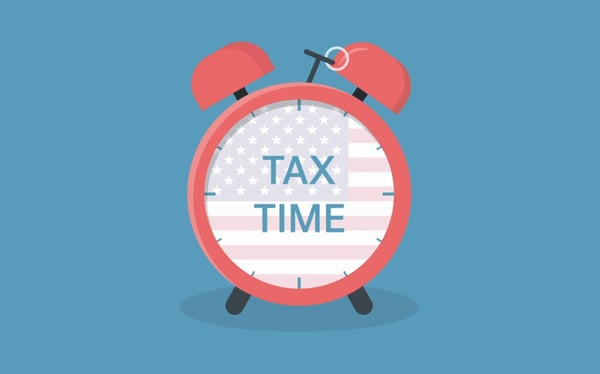As an expat living in the Philippines, you are required to pay tax on your income above a certain threshold from any sources within the country. Most foreigners will be classed as a resident or non-resident alien, while temporary expatriates (expats) working for multinational companies are classed as special aliens. Foreigners from countries that operate a tax treaty with the Philippines can avoid double taxation.
Paying overseas taxes? Save money when you send money with CurrencyFair's low-margin FX rates.
Only resident citizens are liable for tax on their worldwide income. To become a resident citizen, an expat has to come from a country with a reciprocity agreement with the Philippines and be legally married to a Philippine citizen.
Tax rates depend on the nature of income, ie. whether it is ‘compensation', estates, capital gains etc., and are set according to a relatively straightforward tax bracket system.
2021 income tax Philippines rates table
Income tax in the Philippines is payable to the Bureau of Internal Revenue on or before 15 April of each year. For 2021, the following tax brackets apply:
-
0% on any income up to 250,000 Philippine Peso (PHP) (US$12,163).
-
20% on income from 250,000 to 400,000 PHP (US$19,471).
-
25% on income from 400,000 to 800,000 PHP (US$38,943).
-
30% on income from 800,000 to 2,000,000 PHP (US$97,359).
-
32% on income from 2,000,000 to 8,000,000 PHP (US$389,439).
-
35% on income over 8,000,000.
These brackets are due to change in 2023, when income taxes will reduce to:
-
0% on any income up to 250,000 Philippine Peso (PHP) (US$12,163).
-
15% on income from 250,000 to 400,000 PHP (US$19,471).
-
20% on income from 400,000 to 800,000 PHP (US$38,943).
-
25% on income from 800,000 to 2,000,000 PHP (US$97,359).
-
30% on income from 2,000,000 to 8,000,000 PHP (US$389,439).
-
35% on income over 8,000,000 PHP.
How to pay tax in the Philippines - the employer's and individual's role
Compensation income tax from employment is normally deducted from pay by the employer through the Electronic Filing and Payment System. If tax deductions are not enough to meet your overall liability, you will have to file a return by 15 April of the following year with the Bureau of Internal Revenue (BIR).
Expats who are liable for tax on passive income, such as dividends and royalties, or business income should download the relevant forms from the BIR portal (in English).
In order to declare and file taxes through the Inland Revenue, you will need a 12-digit Philippines Tax Identification Number (TIN).
How to get a Philippines tax identification number
Non-resident citizens and resident aliens whose income is purely compensation-based should download Form 1902. Corporations use Form 1903 and short-term expats working for multi-nationals or government agencies should use Form 1904.
Typically, you will need to supply an official ID (passport, birth certificate, marriage certificate), work permit or certificate of employment, and proof of address.
File the forms at your nearest Revenue District Office (RDO) in person, by mail, or online. After your application has been processed you will be issued with a Form 2303 Certificate of Registration.
Failure to submit a tax return on time can result in late payment penalties equal to 25% of the amount due, plus annual interest of 20% on any overdue balance.
What income is taxed in the Philippines
Expats living in the Philippines may be liable for tax on each of their potential revenue streams, whether it is their employment income, passive income and business or professional income. Each is taxed separately, but remember that only income from sources in the Philippines is taxable.
As illustrated above, compensation income from employment is normally taxed at source. Passive income from investments is subject to a 20% Final Withholding Tax, and Business or Professional Income is subject to a 30% Corporate Tax after deductions (net).
Other possible taxes to factor in
Foreigners who sell property in the Philippines must pay Capital Gains Tax (CGT) fixed at 6% of the gross sale price.
If you're working in a senior managerial or technical position for a large multinational, oil and gas contractor, or Regional Headquarters (RHQ), income tax is fixed at 15%.
Foreign workers in the Philippines (and their employers) also pay into the Philippines Social Security System (SSS). For the 2021 tax year, the upper limit for contributions is PHP 24,300 (US$477).
Allowable tax deductions
Non-resident Aliens can deduct personal allowances but not expenses from their annual tax liability. Rather than providing an itemised list of deductions, you can apply for an Optional Standard Deduction (OSD) up to a maximum of 40% of gross sales or receipts. However, these allowances do not apply to compensation income.
How to avoid paying tax twice
Foreign nationals and business owners from one of the 43 countries with a Double Tax Agreement (DTA) with the Philippines can apply for preferential rates on dividends, royalties and interest (business income) or exemptions on employment income and capital gains.
Tax specifications for US citizens in the Philippines
Although United States citizens and green card holders have to file an annual tax return with the Internal Revenue Service (IRS), there is the possibility to claim any tax already paid in the Philippines against US tax liability. Under the Foreign Earned Income Exclusion (FEIE), US citizens can exclude up to US$108,700 in foreign earnings. However, this does not apply to business owners or US government employees.
Paying overseas taxes? Save money when you send money with CurrencyFair's low-margin FX rates.
Disclaimer: This article is for general information purposes only and does not take into account your personal circumstances. This is not investment advice or an inducement to trade. The information shared is for illustrative purposes only and may not reflect current prices or offers from CurrencyFair. Clients are solely responsible for determining whether trading or a particular transaction is suitable. We recommend you seek independent financial advice and ensure you fully understand the risks involved before trading. Leveraged trading is high risk and not suitable for all. Losses can exceed investments. Opinions are the authors; not necessarily that of CurrencyFair or any of its affiliates, subsidiaries, officers or directors.
Photo by JC Gellidon on Unsplash.



.jpg?width=600&name=eibner-saliba-3T9dDY0WqDI-unsplash(1).jpg)








